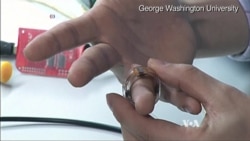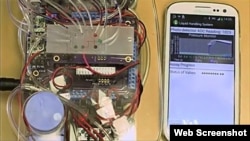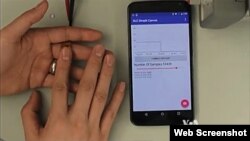It can be a matter of life or death — waiting for test results from a laboratory about a serious health problem. But two small medical devices now in development can quickly diagnose some conditions, including the potential for a heart attack.
The first, a “tricorder,” was given the same name as the fictional medical scanner used on the Star Trek TV and movie series.
Diagnostic tool
The real-world tricorder can also diagnose some diseases by testing blood, urine and saliva samples. A small chip in the device contains a complex liquid network that tests those fluids. The diagnostic results are forwarded to a Smartphone app, says Zhenyu Li, the tricorder’s inventor.
“And the goal of this is to put this thing in potentially a physicians’ office, or even in the patient’s home,” said Li, an Assistant Professor of biomedical engineering at George Washington University in Washington, DC. “You can get the results within hours, if not minutes.”
That rapid response could alert someone of an impending heart attack or diagnose other serious health problems. The tricorder also could be used to test for infectious diseases.
Lifesaving sensor
The second invention is worn like a piece of jewelry on your finger — a flexible ring embedded with a wireless electrocardiogram sensor that can diagnose heart irregularities, as well as other conditions. Like the tricorder, the results are delivered to your phone app, or directly to your doctor.
“I think a ring is really the only thing that people wear all the time and also it’s relatively stable compared to a wristband or watch,” Li pointed out, while recognizing that not everyone likes this do-it-yourself health care.
“There are people who are not comfortable, don’t like putting sensors on their body,” he explained. “But for people who have chronic conditions, who are sometimes at risk of, for example, heart attacks, this device could be useful and life-saving.”
Both valuable diagnostic tools could be in the hands of doctors and patients within just a few years.













